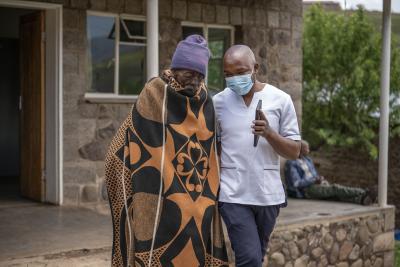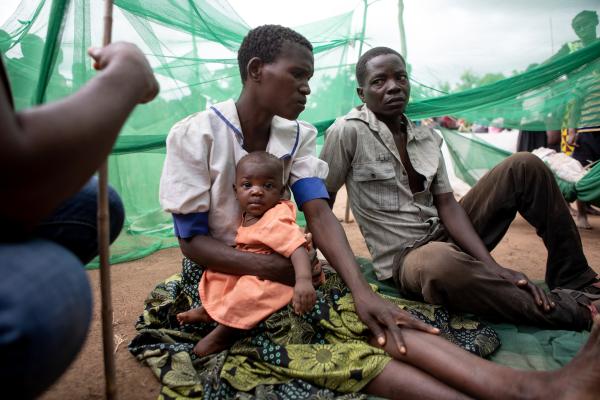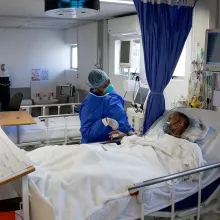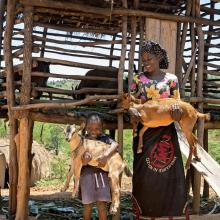The United States’ decision to withdraw from the World Health Organization (WHO) has profound implications for access to essential health services worldwide. Combined with a suspension of all foreign aid, and efforts to dismantle the U.S. Agency for International Development (USAID), these decisions put decades of progress at risk–including fighting diseases like HIV and tuberculosis. Disruption to life-saving care are already causing the loss of countless lives. As Canadians, we can, and must, do what we can to mitigate the damage.
The U.S. has been a key player in global health, particularly through initiatives like the President’s Emergency Plan for AIDS Relief (PEPFAR), which provides life-saving antiretroviral therapy to millions. Funding disruptions, stop-work orders and staff cuts will lead to a spike in HIV-related complications and deaths. Efforts to control tuberculosis—which still claims over a million lives annually—are also under threat.
The Cost of Underfunding
History shows the catastrophic effects of under-resourced health systems. During the Greek financial crisis, austerity measures led to significant cuts in healthcare, resulting in an estimated 10,000 additional infant deaths. Similarly, during the 2014-16 Ebola epidemic in West Africa, underfunded health systems struggled to contain the virus, worsening the crisis. These examples make one thing obvious: when health systems are weak, people suffer.
PIH teams witness the impact of global health funding, or lack thereof, every day. Our colleagues work in some of the world’s most vulnerable communities, providing care, building health systems, and training healthcare workers. US funding cuts have devastating consequences for our patients and the communities we serve. Many of the public sector clinics and hospitals PIH supports—already operating under strained conditions—face the possibility of rationing care, scaling back services, and being unable to meet the needs of vulnerable populations. This includes patients who rely on regular access to life-saving treatments for chronic diseases, mothers and children in need of prenatal and pediatric care, and communities grappling with outbreaks of preventable illnesses.
The recent series of decisions by the U.S. government will have devastating consequences, but they also remind us why our work matters. Now, more than ever, we need your support.

Khanyapa Tuoane from Motlomo goes to Thlanyaku Health Centre to access health services. Molefi Tsiu, PIH TB Nurse is assisting him during his visit to the clinic to get his month’s supply of medication.
Photo by Justice Kalebe / PIH
How You Can Help
At Partners In Health Canada, we remain committed to what we’ve always done: supporting our colleagues around the world to deliver high-quality care, strengthen health systems, and fight for health equity.
Here’s how you can make an impact:
- Contribute: Your support helps fill critical funding gaps, ensuring that health programs remain strong and effective. Start a monthly donation here.
Share: Help spread the word by sharing this message within your networks. The more people who understand the stakes, the stronger our community response can be.
While government action is critical, private donors play an important role, especially in times of crisis. Donor-advised funds and foundations hold significant resources that could be mobilized right now to support life-saving work. Private philanthropy provides the flexibility to respond swiftly, where and when the need is greatest.
To our supporters: Your contributions have always been the foundation of our work. In moments like this, your support helps sustain critical health programs, strengthens fragile health systems, and ensures that progress continues even in times of uncertainty. Every action, no matter the size, helps communities around the world thrive amidst challenges.
The recent decisions from the U.S. administration against global health efforts is a challenge we can’t ignore. But it’s also a chance to double down on our commitment to global health and to show what we can achieve when we come together with a shared purpose.
The work continues, and with your support, so does the progress.


